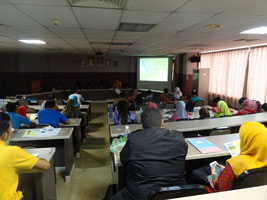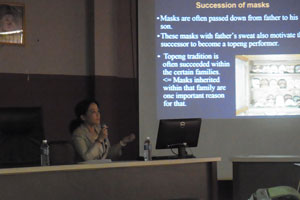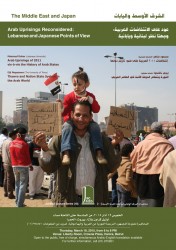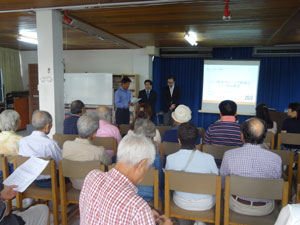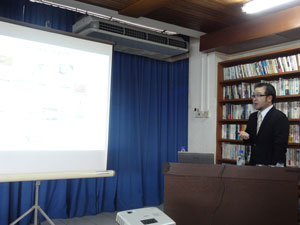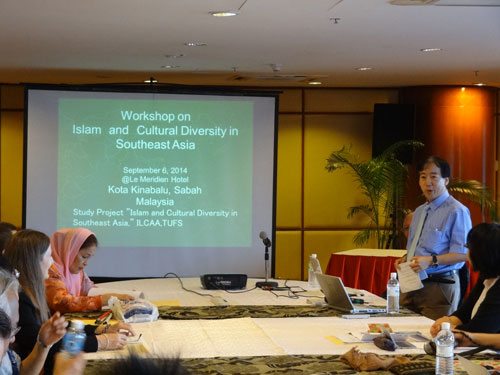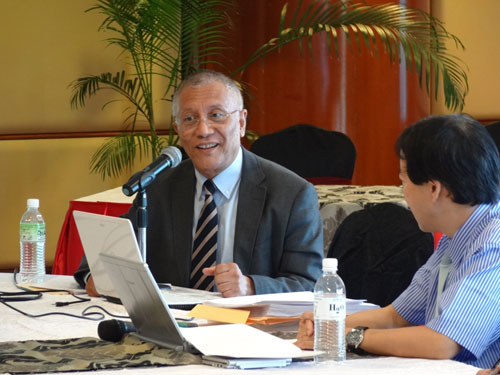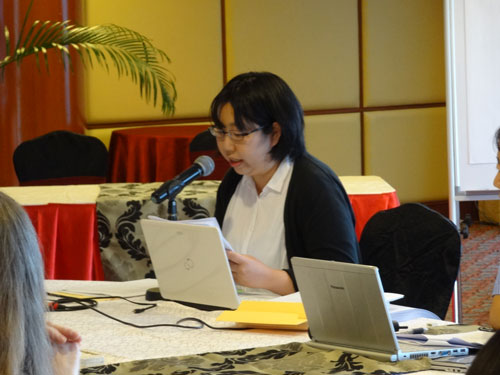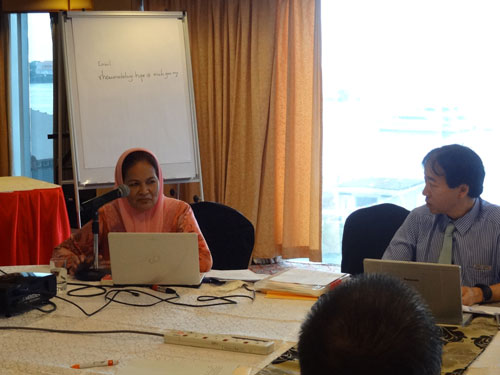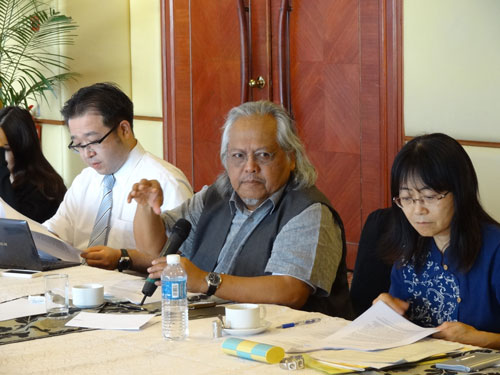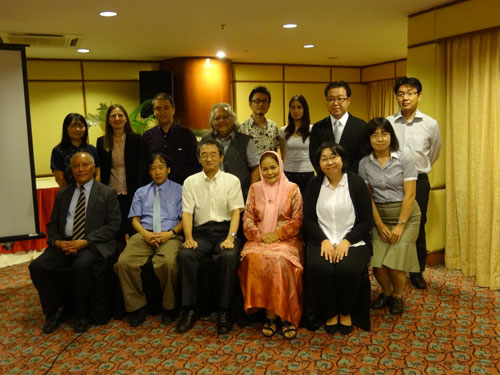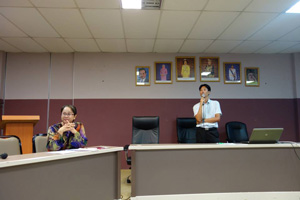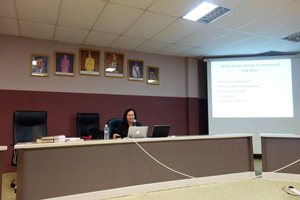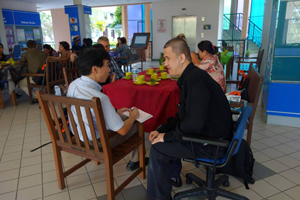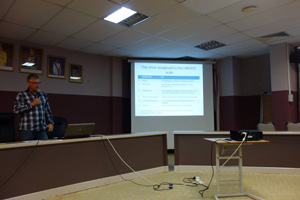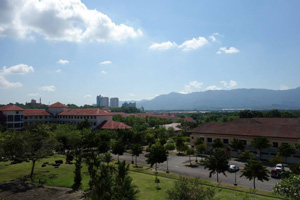“The Middle East in the Midst of Political Cataclysm”
A century after the outbreak of World War I, we are observing the melt-down of borders established in the Sykes–Picot Agreement. Multiple players in the Syrian Civil War are compelling international powers to intervene at various levels, resulting in serious sectarian resonance in Iraq. Undoubtedly, in retrospect, the Iraq War of 2003 directly created this devastating result and the emergence of the “Islamic State” in the two countries, which had a global impact on many countries, from the US to Australia (and Japan). However, the glimpses of ancient social grievances in the two countries as well as in neighboring nations lead us to reconsider the current situation over longer timespans and wider ranges. The issues in and around the Middle East are all interwoven one another. The exchange of ideas among leading researchers from Japan and Lebanon will elucidate this issue from diverse viewpoints, which may help to gain a better perspective on the future of the Middle East.
program as PDF
| Date / Time |
Wednesday, November 26, 2014 |
|---|
| Venue |
Japan Center for Middle Eastern Studies (JaCMES),
2nd Floor, A2-1, Azariyeh Bldg.,Beirut Central District
Phone 01-975851 |
|---|
Program
| 14:00-14:10 |
Welcome Remarks by Hidemitsu Kuroki (JaCMES) |
|---|
| 14:10-14:30 |
Presentation 1 by Massoud Daher (Lebanese University) |
|---|
| 14:30-14:50 |
Presentation 2 by Keiko Sakai (Chiba University) |
|---|
| 14:50-15:10 |
Presentation 3 by Dalia Ghanem-Yazbeck (Carnegie Middle East Center) |
|---|
| 15:10-15:30 |
Q & A |
|---|
| 15:30-15:50 |
Break |
|---|
| 15:50-16:10 |
Presentation 4 by Akira Usuki (Japan Women’s University) |
|---|
| 16:10-16:30 |
Presentation 5 by Hilal Khashan (American University of Beirut) |
|---|
| 16:30-16:50 |
Presentation 6 by Yasuyuki Matsunaga (Tokyo University of Foreign Studies) |
|---|
| 16:50-17:10 |
Q & A |
|---|
| 17:10-17:30 |
Break |
|---|
| 17:30-18:30 |
Discussion |
|---|
| Chair : |
Hidemitsu Kuroki |
|---|
Panelists
Massoud Daher is a professor at Lebanese University. He specializes in Modern History of the Middle East and Japan. His publication includes Modern History of Japan, 1853-1945: The Challenge and Resonance (in Arabic), Abu Dhabi, 2009.
Keiko Sakai is a professor at Faculty of Law, Politics and Economics, Chiba University. She specializes in the international politics of the Middle East and the modern history of Iraq. Her publication includes Middle East Politics (in Japanese), Tokyo, 2012
Dalia Ghanem-Yazbeck is a research analyst at the Carnegie Middle East Center. She specializes in political violence and Islamism, with a focus on Algeria. Her publication includes “The Decline of Islamist Parties in Algeria” (Sada). http://carnegieendowment.org/sada/index.cfm?fa=show&article=54510&solr_hilite=Algeria
Akira Usuki is a professor at Faculty of Humanities, Japan Women’s University. He specializes in the modern history of Palestine/Israel and of Islam in Japan. His publication includes Palestine Question in the World History (in Japanese), Tokyo, 2013.
Hilal Khashan is a professor at the American University of Beirut. He specializes in the Comparative Politics of the Middle East. His publications include five books and more than 85 articles in internationally refereed journals.
Yasuyuki Matsunaga is a professor of political science at Tokyo University of Foreign Studies. He specializes in politics and religion in postrevolutionary Iran. He is currently working on a book manuscript titled Reforming Islamist Iran: Religion, Intellectuals, and Politics during the Rafsanjani-Khatami Years.
Hidemitsu Kuroki is a professor at Research Institute for Languages and Cultures of Asia and Africa, Tokyo University of Foreign Studies, and Head of JaCMES. He specializes in the history of Ottoman Syria. His publication includes The Influence of Human Mobility in Muslim Societies, London, Kegan Paul, 2003.
Sponsored by Japan Center for Middle Eastern Studies, Research Institute for Languages and Cultures of Asia and Africa, Tokyo University of Foreign Studies

